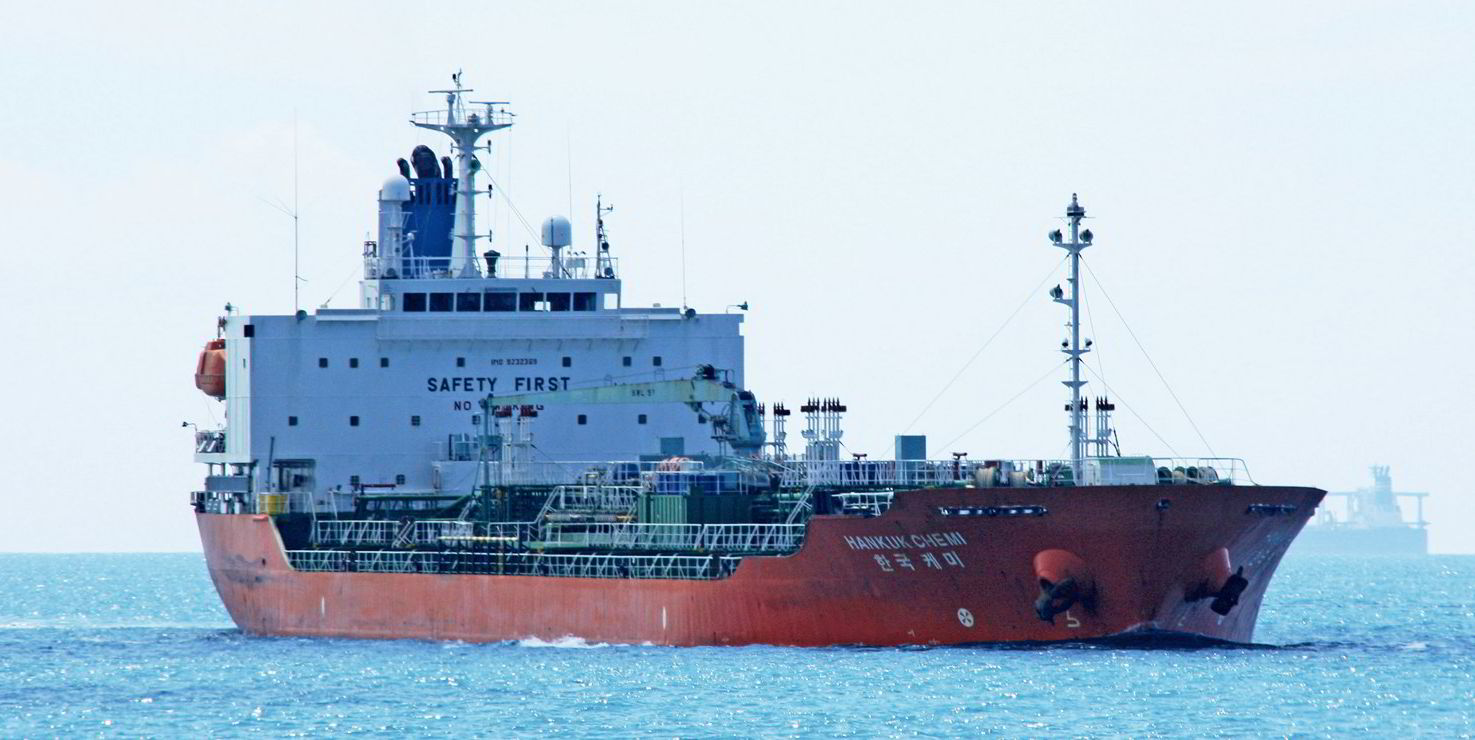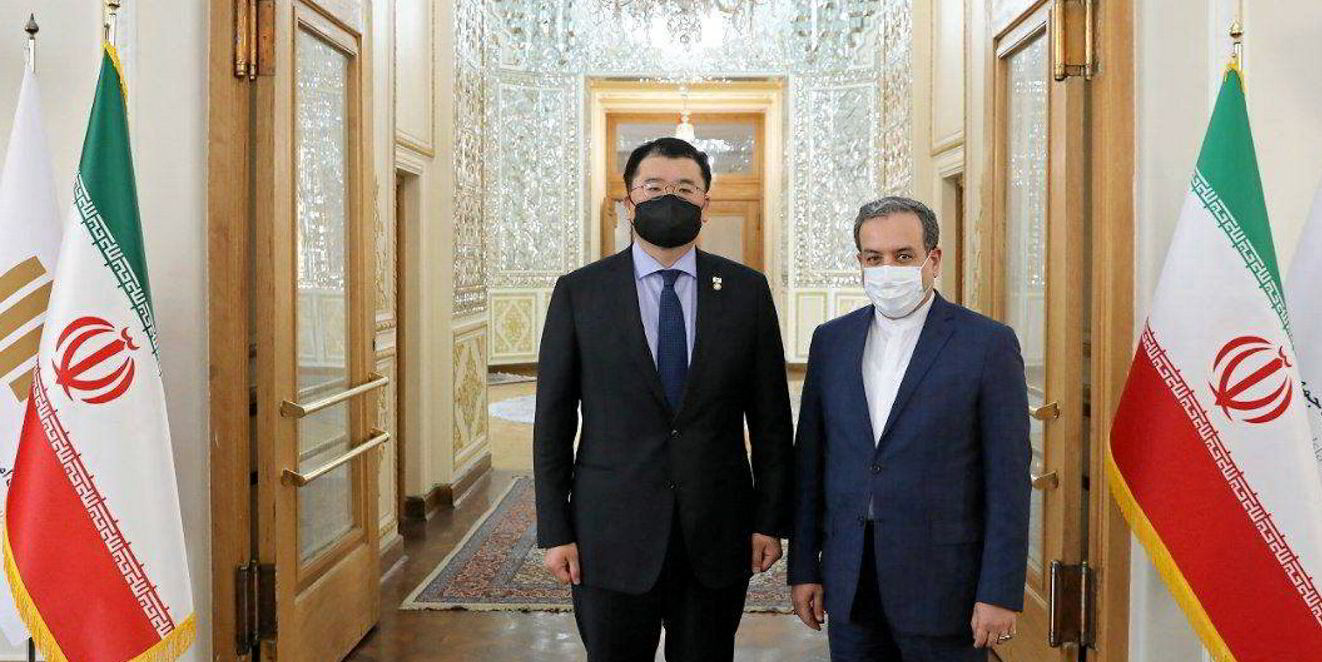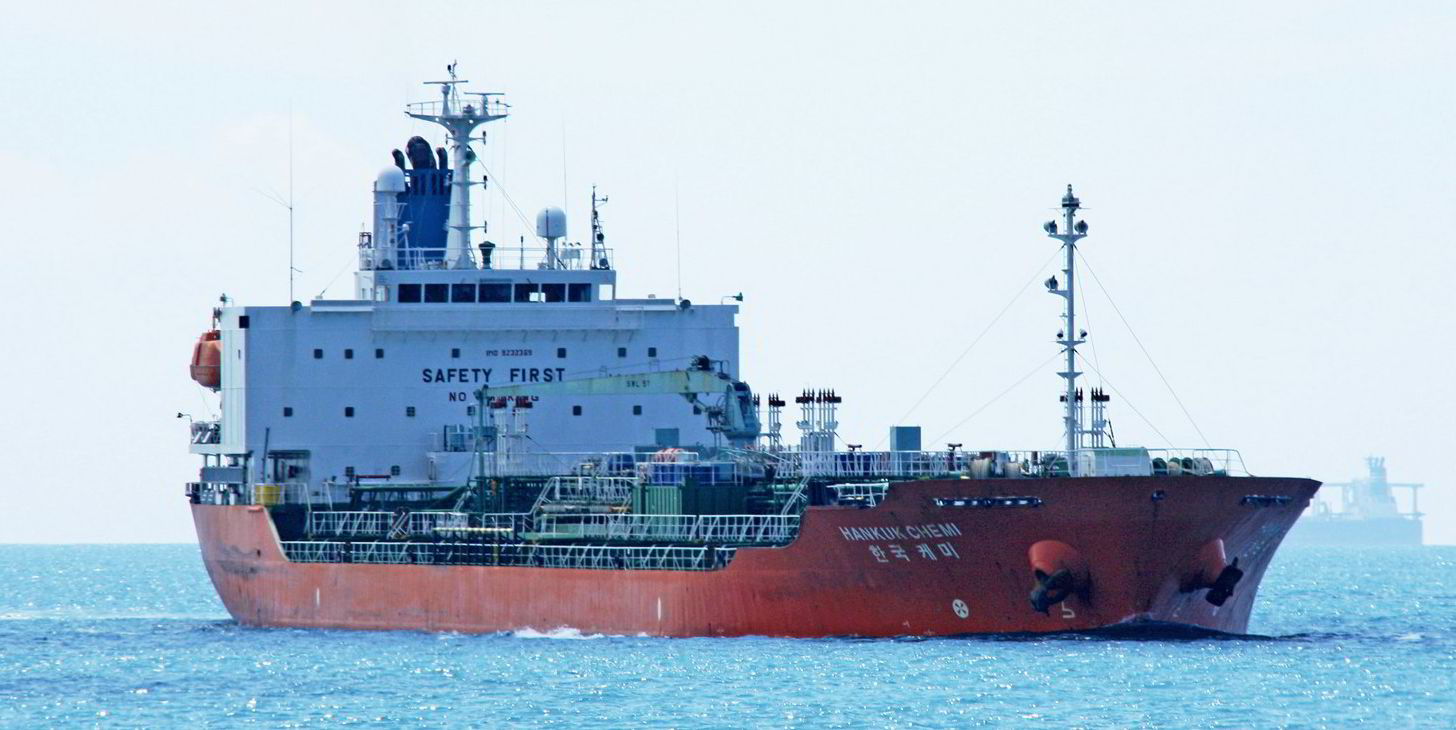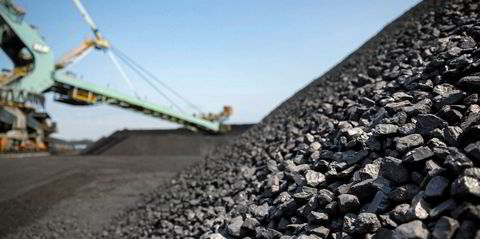The South Korean product tanker Hankuk Chemi looks set for a long stay in Iran as the two countries have yet to make progress in negotiating its release — despite recent high-level diplomatic talks.
Tehran is sticking to its claim that the 17,400-dwt chemical tanker (built 2020) was seized on a "technical issue" involving environmental pollution and is, therefore, subject to its legal and judicial regulations, despite South Korea first vice minister of foreign affairs Choi Jong Kun’s pursuit of a diplomatic solution.
Observers told South Korea’s Yonhap News Agency on Monday that the prospects for an early release of the ship and crew “remain murky, as Iran's adherence to the judicial process has left little room for a diplomatic solution”.
Legal sources in Singapore, who advise on Iranian sanctions matters, told TradeWinds that if an Iranian court were to fine owner DM Shipping or operator Taikun Shipping, it could put either company at risk of breaking US sanctions if they paid money to the Iranian government.
A solution might be for the South Korean government to pay the fine, but it is unclear whether that would be acceptable, or even possible.
Choi visited Tehran on 10 January for three days of discussions with Iran's deputy foreign minister, Abbas Araqchi.
Iran's focus was on the $7bn of its oil money held in South Korean banks.
Before leaving for the Middle East, Choi said he would make securing the release of the Hankuk Chemi and its crew his top priority.
Araqchi dismissed any suggestion that Iran had seized the Hankuk Chemi as a bargaining chip for the negotiations, and warned the South Korean diplomatic team to stop politicising the issue.
The timing of its seizure, he claimed, was purely coincidental.
The ship was sailing from Saudi Arabia to the United Arab Emirates with a 20-strong crew, including five South Koreans.
It was seized by Iran's Islamic Revolution Guards Corp on 4 January in the Strait of Hormuz.






